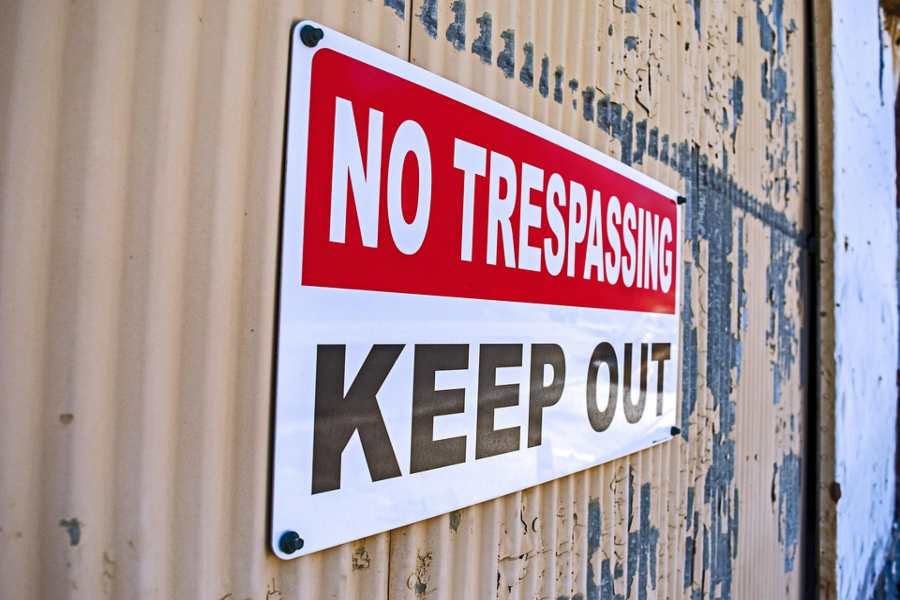No trespassing rules are essential for preserving personal security and protecting private property rights.
David and Lori Baillargeon, an elderly couple from Massachusetts, won a $360,451 civil case against their neighbor following a seven-year property boundary and trespassing dispute.
Understanding no trespassing laws is essential for property owners. These laws protect the right to control who can enter or remain on private land by defining unauthorized entry as illegal and providing a legal basis to take action against violators.
This article will provide an overview of the key aspects of no trespassing laws and the legal protections available to property owners.
Overview of No Trespassing Laws
Trespassing laws give property owners a legal basis to assert control over a property.
No trespassing signs notify the public that the land is private and off-limits. In many jurisdictions, the mere existence of such signs serves to enforce your case in court against trespassers.
The laws vary by state, but typically, you have the right to demand that any intruder on your property leave immediately or to call law enforcement if they refuse. Being aware of these laws helps protect your property and encourage others to respect your boundaries.
Property Owner Rights and Responsibilities
If you own land or property, you have certain rights and responsibilities, the majority of which are related to land maintenance and protection.
Except for friends and visitors, you may keep the back door closed to prevent unwanted entry. You can even post the “No Trespassing” sign to assert your rights legally.
Property owners are legally required to remove any potential hazards on their property, particularly those that pose a risk to visitors or trespassers in the area. If a visitor is injured on your property, you may be held liable.
Landowners and property owners must respect local laws and ordinances by complying with zoning and environmental specifications.
Understanding Trespassing Offenses
Various states define trespassing in different ways. For example, some require that the trespasser knowingly entered the property, while others seem to focus on whether the person had legal permission to be there. If a property owner requests that you leave and you refuse, some jurisdictions may consider your continued presence to be trespassing.
Keep in mind that certain instances might work as a defense to a charge of trespass. For example, entering a property during an emergency, such as to assist someone in danger, could be legally justified. In some cases, entering during daylight hours without criminal intent might result in reduced penalties or be viewed more leniently, depending on the laws in that jurisdiction.
Legal Consequences of Trespassing
Trespassing can result in serious legal consequences if you are repeatedly convicted of ignoring property boundaries, which vary depending on the jurisdiction and can include either civil or criminal penalties.
Some property owners may occasionally find themselves bringing suits against you for damages due to interference with their use and enjoyment of the property. Criminal charges may be filed under misdemeanor or felony authority, depending on the severity of your actions and the intent present during the act of trespassing.
Individuals convicted of trespassing charges can receive a criminal record, which could limit housing and employment opportunities. Law enforcement may even issue an immediate citation against you or enforce the arrest.
Steps to Take When Facing a Trespassing Issue
If someone is illegally present on your property, take the following steps:
Assess the whole situation and determine whether the trespasser is still on your property. If yes, then calmly confront them and ask them to leave. If they decline, record the incident with photos or notes and call the local authorities.
You might want to install cameras or signs as deterrents against trespassers. If the problem persists, you may want to consult with a lawyer about additional options, such as restraining orders or lawsuits.


